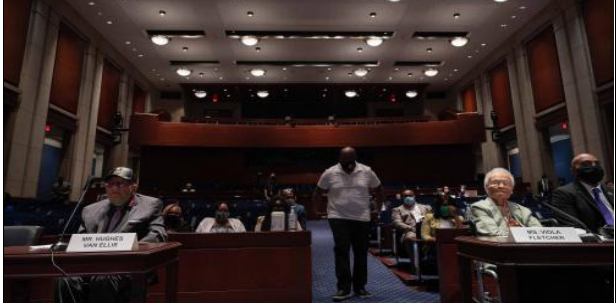Advocating and protecting minority groups’ access to educate on problems affecting them in the US

The Commission on Human Rights created the Special Rapporteur’s Mission on Minority Issues in Resolution 2005/79 on April 21, 2005. The Human Rights Council subsequently extended the mandate in its decisions 7/6 of March 27, 2008, 16/6 of March 24, 2011, 25/5 of March 28, 2014, and 34/6 of March 23, 2017 [4, 5].
The Human Rights Council selected the Special Rapporteur on Minority Issues, who began serving on August 1, 2017. Fernand de Varennes is an Adjunct Professor at the National University of Ireland-Galway and an Extraordinary Professor at the Law Faculty of the University of Pretoria in South Africa (Ireland) [6-8].
The first set of proposals from the United Nations Forum on Minority Issues calls for a successful minority education plan. According to the UN Minorities Declaration, the term “minorities” refers to national or ethnic, religious, and linguistic minorities. Education is an unalienable human right, not only a good or a service, according to international human rights law [9].
The World Education Forum (WEF) has urged nations to uphold the universal right to education, do away with prejudice, and ensure that minorities get high-quality education. Governments must also make sure that minority students receive educational services that meet national standards. In addition to identifying and analyzing best practices, problems, opportunities, and initiatives, the Forum offers a forum for fostering communication and collaboration on matters pertaining to minorities [10-12].
The Forum offers a forum for advancing discussion and collaboration on problems affecting minorities. Additionally, it finds and evaluates innovative ideas, problems, and best practices. Every nation’s national borders contain at least one minority group. While some minorities are dispersed around the nation, others reside together in clearly defined zones [13-15].
In summary, Respect for minority rights fosters tranquil, prosperous neighborhoods where everyone may thrive, enjoy their human rights, and feel safe. Minorities still face significant risks, discrimination, and exclusion from fully participating in the political, social, and economic life of their countries. International human rights legislation states that education is a human right, not only a benefit or a service. With the approval of the United Nations Declaration on Minority Rights, which was released by the UN in 2015, the first United Nations mandate on minority concerns has come to a conclusion.
References
[1] C. Subhrajit, “Problems faced by LGBT people in the mainstream society: Some recommendations,” International Journal of Interdisciplinary and Multidisciplinary Studies, vol. 1, no. 5, pp. 317-331, 2014.
[2] R. Stavenhagen, “Building intercultural citizenship through education: A human rights approach,” European Journal of Education, vol. 43, no. 2, pp. 161-179, 2008.
[3] J. D. Skrentny, The minority rights revolution. Harvard University Press, 2009.
[4] G. McDougall, “The First Mandate: Experiences and Lessons Learned,” in The First United Nations Mandate on Minority Issues: Brill Nijhoff, 2016, pp. 1-34.
[5] G. J. McDougall, The first United Nations mandate on minority issues. Martinus Nijhoff Publishers, 2015.
[6] F. de Varennesis and C. M. Gardiner, “Routledge Handbook of Human Rights in Asia,” 2019.
[7] W. Romans, I. Ulasiuk, and A. P. Thomsen, Effective participation of national minorities and conflict prevention. Brill, 2019.
[8] C. H. Williams, “Afterword: Conviction, Advocacy and Resilience,” in Language, Policy and Territory: Springer, 2022, pp. 387-420.
[9] G. Fox, “The United Nations Forum on Minority Issues and its Role in Promoting the un Declaration on the Rights of Persons Belonging to National or Ethnic, Religious and Linguistic Minorities,” in The United Nations Declaration on Minorities: Brill Nijhoff, 2015, pp. 87-106.
[10] B. Keeley and C. Little, The State of the Worlds Children 2017: Children in a Digital World. ERIC, 2017.
[11] L. Chapman and J. West-Burnham, Education for social justice: Achieving wellbeing for all. A&C Black, 2010.
[12] L. Scott, C. Dolan, M. Johnstone–Louis, K. Sugden, and M. Wu, “Enterprise and inequality: A study of Avon in South Africa,” Entrepreneurship Theory and Practice, vol. 36, no. 3, pp. 543-568, 2012.
[13] A. A. Parham, “Diaspora, community and communication: Internet use in transnational Haiti,” Global Networks, vol. 4, no. 2, pp. 199-217, 2004.
[14] A. Favell, “Integration nations: The nation-state and research on immigrants in Western Europe,” in Multicultural challenge: Emerald Group Publishing Limited, 2003.
[15] W. Kymlicka, “The internationalization of minority rights,” in Global Minority Rights: Routledge, 2017, pp. 35-66.
